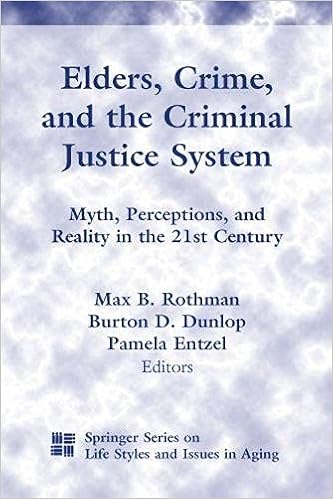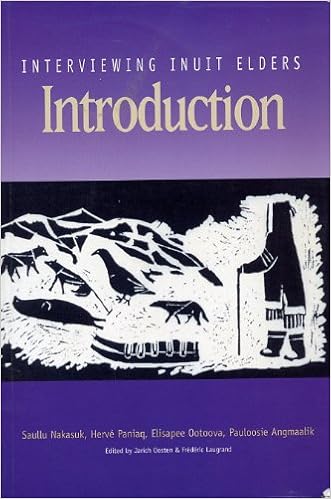Elder Law
A collection of helpful materials for those researching Elder Law

Not sure where to start? Try some of these phrases when searching OMNI, Credo, or other search tools:
- "Aging populations"
- Elder*
- "Older adults"
- Seniors
Librarian
Select eBooks
-
Aging, Ageism and Abuse by Gloria Gutman & Charmaine Spencer (Editors)
Population aging is occurring worldwide. Reports of abuse and neglect of older men and women are also evident on a global basis. While much of the work on identification, treatment and prevention of abuse of older persons has been within the family setting, it cannot be separated from the broader experience of growing old in contemporary society. -
Beyond Elder Law by Israel Doron (Editor); Ann M. Soden (Editor)
All over the world, there is a growing interest in the relationship between law and aging: How does the law influence the lives of older people? Can rights, advocacy and representation advance the social position of the aged and combat ageism? What are the new and cutting-edge frontiers in the field of elder law? Should there be a new international human rights convention in this field? These are only a few of the many questions that arise. -
Contemporary Perspectives on Ageism by Ayalon, Liat & Tesch-Römer, Clemens (editors)
The book represents a collaborative effort of researchers from over 20 countries and a variety of disciplines, including, psychology, sociology, gerontology, geriatrics, pharmacology, law, geography, design, engineering, policy and media studies. The contributors have collaborated to produce a truly stimulating and educating book on ageism which brings a clear overview of the state of the art in the field. -
The Encyclopedia of Elder Care, Fourth Edition
This expanded, one-of-a-kind reference of more than 250 entries provides a comprehensive guide to all of the essential elements of elder care across a breadth of health and social service disciplines. Responding to the needs of providers, direct care workers, family, and other caregivers, the diverse array of entries included in this encyclopedia recognize and address the complex medical, social, and psychological problems associated with geriatric care. -
Theories on Law and Ageing by Israel Doron (Editor)
This book is about trying to answer questions. These questions were well introduced by Prof. Margaret Hall in the opening of her chapter in this book: "The fundamental idea of 'law and aging' as a discrete category of legal principle and theory is controversial: how and why are 'older adults' or 'seniors' or 'elders' (the very terminology is controversial and fraught with difficulties) a discrete and distinct group for whom 'special' legal thought and treatment is justified? -
Disability and Aging Discrimination by Richard L. Wiener & Steven L. Willborn (Eds)
Two things are certain in the contemporary workplace: the aging of employees, and negative attitudes toward them - especially those with disabilities--by younger colleagues and supervisors. Yet related phenomena seem less clear: how do negative stereotypes contribute to discrimination on the job? And how are these stereotypes perceived in legal proceedings? This book applies Social Analytic Jurisprudence, a framework for testing legal assumptions regarding behavior, and identifies controversies and knowledge gaps in age-discrimination and disability law. -
The Aging-Disability Nexus by Katie Aubrecht (Editor); Christine Kelly (Editor); Carla Rice (Editor)
As the global population ages, disability demographics are shifting. This thoughtful examination of competing narratives about disability and aging explores the distinction between aging with a disability and aging into disability, revealing how multiple identities, socio-economic forces, culture, and community give form to our experiences.
Reports & Papers
-
Ageism and the law emerging concepts and practices in housing and health : final reportCharmaine Spencer / Law Commission of Ontario
-
Care/work law reform to support family caregivers to balance paid work and unpaid caregiving : a study paperCanadian Centre for Elder Law Studies
-
A Comparative Analysis of Adult Guardianship Laws in BC, New Zealand and OntarioCanadian Centre for Elder Law Studies
Select Journals
-
Elder Law JournalUniversity of Illinois at Urbana-Champaign, College of Law
-
ExperienceABA Senior Lawyers Division
-
Journal of International Aging, Law & PolicyStetson University, College of Law; American Association of Retired Persons.
Select Articles
Media
-
The Remaining LightA documentary film that journeys through an often invisible part of Canada's health care system -- the community-based services that provide care to seniors as they age and die. The film features the stories of seniors and their families, and explores themes related to dignity, preventing illness and social isolation, and keeping health care costs under control as the boomer generation ages.
-
"Late Life Issues and Innovations"Friesen Conference 2016: Substitute and Supported Decision Making in Canada – Discussion of the study paper (recording)
-
The Elder ProjectThe Elder Project follows seven diverse seniors over two years and records their experiences through a series of short and candid episodic stories. As they face the possibility of increasing frailty and transitioning into more dependent-living scenarios, the elders talk of their concerns and eloquently express their desire to grow older with dignity and some control over their future.
Databases
-
Lexis+ Canada - for Law Students only (formerly Lexis Advance Quicklaw) This link opens in a new window(Requires registration)
-
CanLII (Canadian Legal Information Institute) This link opens in a new window
Provides access to court judgments, tribunal decisions, statutes and regulations from all Canadian jurisdictions.
-
HeinOnline This link opens in a new windowMassive collection of journals, case law, statutes, and historical materials. Includes journals such as Elder Law Review, Elder Law Journal, and Elder's Advisor.
Also includes:
*Selden Society Publications and the History of Early English Law
*Scottish Legal History: Featuring Publications of the Stair Society
*Air and Space Law
*John F. Kennedy Assassination Collection
*Executive Privilege
*Business and Legal Aspects of Sports and Entertainment (BLASÉ) -
Sociology Database (Formerly ProQuest Sociology) This link opens in a new windowIncludes many titles on Gerontology, like the Journal of Geriatric Mental Health, Journal of Women & Aging, and the Journal of Elder Abuse & Neglect.
Other Libraries / Institutes
-
The Canadian Centre for Elder LawCanadian Centre for Elder Law (“CCEL”) is a national, non-profit body dedicated to exploring the particular legal issues which affect older Canadians. Associated with the British Columbia Law Institute (BCLI). This site has completed & ongoing projects in elder law, webinars, and more.
-
Gerontology Research Centre (Simon Fraser U)The GRC serves as a focal point for research, education, and information on individual and population aging and maintains an active publications program in: Aging and the Built Environment, Changing Demography and Lifestyle, Health Promotion/Population Health and Aging, Prevention of Victimization, Exploitation of Older Persons, Technology and Aging, and Culture and Aging.
-
Elder Law - Canadian Bar AssociationThe CBA Elder Law Section deals with laws affecting seniors. We promote professionalism in the field and provide a forum to discuss legal matters affecting the elderly. (Some sections require membership to access).
-
Old SchoolOld School is a clearinghouse of free and carefully vetted resources to educate people about ageism and help dismantle it.
-
Centre for Education and Research on Aging & HealthPart of Lakehead University. CERAH has identified four key areas of expertise priorities for research and education: Aging at Home; Dementia & Seniors’ Mental Health; Indigenous Peoples’ Health & Aging; and Palliative Care.





